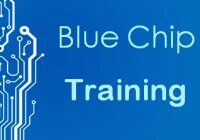 Overview
Overview
Windows Presentation Foundation (WPF) is an open-source graphical subsystem framework for rendering user interfaces. It provides tools and resources for creating desktop client applications.
This instructor-led, live training (online or onsite) is aimed at software developers who wish to develop desktop client applications using the latest version of WPF, C#, and Visual Studio.
By the end of this training, participants will be able to:
- Learn and understand how to use the MSDN resources and tools.
- Support the development process in Microsoft Visual Studio.
- Develop business desktop applications using WPF technology and C# language.
Format of the Course
- Interactive lecture and discussion.
- Lots of exercises and practice.
- Hands-on implementation in a live-lab environment.
Course Customization Options
- To request a customized training for this course, please contact us to arrange.
Requirements
- Knowledge of the basic phrases of software development
- Knowledge of Visual Studio and C#
Audience
- Software developers
- Programmers
- Technical team leader
Course Outline
Introduction
IDE
- Introduction to Visual Studio
- Creating a project
- Compiling and debugging
Microsoft .NET
- What is .NET?
- CLR and garbage collector
- DLL vs. EXE?
- Technologies within .NET
Foundations of WPF
- History of WPF
- MVVM design pattern
- WPF vs. Windows forms
- Differences between WPF versions
In and Out
- WPF project structure
- XAML, layout, and dependency properties
- Commands and resources
- Events
- Styles and behaviours
- Understanding data binding and data streams
Data Flow
- Data modelling in WPF
- Access to databases
- LINQ
- Entity framework
- CRUD operations
- Data validation
Controls
- Controls review
- WPF toolkit extended
- User controls a custom controls
- Templates
Advanced topics
- Asynchronous and parallel operations
- Inverse of Control (IoC)
- Unity and PRISM
Real World Application
- Developing a system architecture
- Data modelling
- Implementation
- Application testing
Summary and Next Steps
